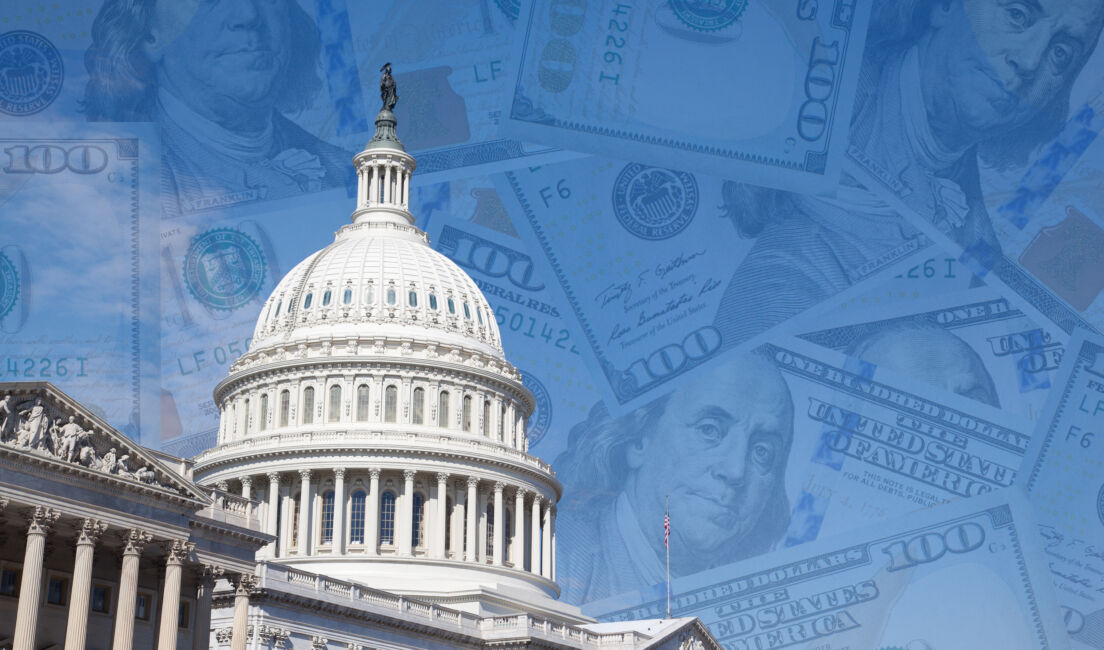Budget proposals, what government “owes” us, and 5 links worth your time
The $6 trillion budget

On May 28th, President Biden presented his $6 trillion fiscal year 2022 budget request to Congress and the country.
I’ve been reading about the budget in conjunction with our current podcast on the cost of higher education. Many people expected to see student loan debt forgiveness in the proposal. It’s not there, but all sorts of other government spending is.
As I read the news, I keep thinking about my own budget experiences. I’ve participated in budget-writing for entire organizations or individual departments in my work. As a volunteer, I’ve helped write budgets for other nonprofits. I generally try, unsuccessfully, to steer clear of household budgeting so my husband can be the bearer of bad news when someone in our family wants something we can’t afford.
As I’ve been reading about the national budget, however, I’m struggling to imagine what it must be like to write the “Budget of the U.S. Government.”
Justifying expenses
Don’t get me wrong, I’m not feeling sorry for President Biden. I’m assuming that anyone who runs for president (and was previously vice president) knows that writing a budget is part of the job. I’m sure he also has more help than I’ve ever had and plenty of people working on the budget for him.
If you’ve ever had to write a budget that is approved by someone else (like your boss) and affects other people (like employees or your kids), you know that you’ve got to be prepared to answer questions about that budget. Can we afford this? Where will we get the money we’re proposing to spend? Why are you doing this instead of that? Does this budget demonstrate good stewardship of the resources we have?
Now, imagine doing that for the entire federal government.
The role of the federal government
Another question you’d need to answer to write or approve that budget would be: “What is the proper role of the federal government?” You can’t make strategic determinations about spending unless you are relatively confident you know what you’re trying to achieve with a budget. My household budget, for instance, must include the cost of food for my kids because one of my responsibilities as a parent is feeding my children.
What is the responsibility of the federal government?
We’ve been arguing about that since at least 1787 and the Constitutional Convention. While the ratification of the Constitution settled the question of who has the power to raise revenue and appropriate funds for the federal government’s budget (Congress, just in case you missed that day in civics class), it didn’t settle what we think our national government should or shouldn’t do.
What do we expect?
This week, our five links include President Biden’s budget proposal (all 72 pages of it), an explanation of the federal government’s budget process (it’s complicated), and several different opinions about what is included in the proposal. What we expect from the federal government, what we can afford, and what role we want government to play in our lives: these are all issues that the budgeting process raises, and I hope you’ll find plenty here to discuss.
5 links worth your time
- All 72 pages of Biden’s $6 trillion budget proposal for America.
- According to this very long infographic, without a budget, many government services will stop.
- Biden’s plan would increase overall spending to the highest sustained level since World War II.
- President’s budget reimagines how — and for whom — the American economy works.
- What’s the role of the federal government post-pandemic? We’re about to see what President Biden thinks it is.
Photo by ozerkina on Adobe Stock